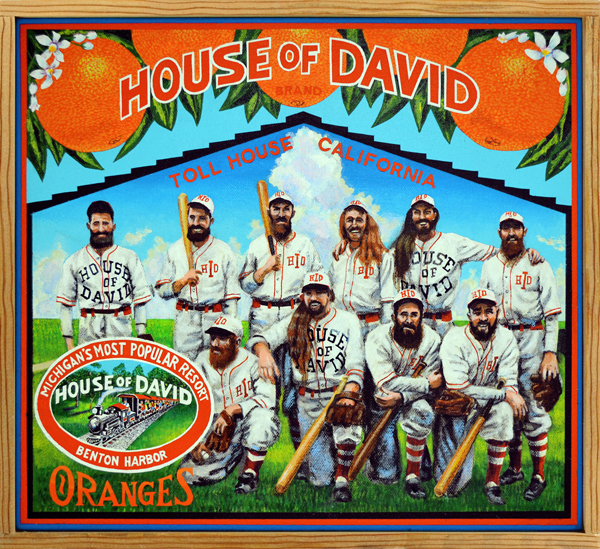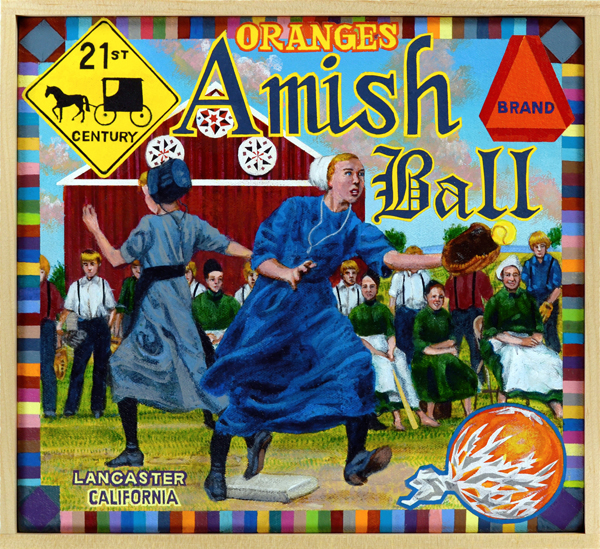•sectarian baseball
Text written by Albert Kilchesty

House of David Brand (Baseball Reliquary collection)
The Israelite House of David was a communal colony founded in 1903 at Benton Harbor, Michigan. In keeping with Semitic religious traditions, men were forbidden to shave or cut their hair. By the 1920s, the House of David became best known for its barnstorming baseball teams. The “Davidites” became a popular attraction and began traveling to play Negro League teams and other clubs throughout the United States, Canada and northern Mexico. Primarily a novelty act, famous for its pepper games and comic displays of other baseball skills, the team featured a number of whiskered wonders who were seriously good enough to receive offers from professional clubs, offers which were declined, of course. As competition intensified, the House of David began recruiting current and former major leaguers, who often performed in fake beards and wigs. Dizzy and Daffy Dean, Larry Jansen and the great Grover Cleveland Alexander played with the team, as did Negro League twirler Satchel Paige. The “Bearded Beauties”—not counting their many impersonators—were phased out during World War II. Their spirit lingers today in the hair that adorns the faces and heads of current major league players.

Amish Ball Brand
Baseball is an anachronism—a nineteenth-century game that has struggled, at times, to retain relevance in the digital era. The Amish, specifically the Pennsylvania Dutch in and around Lancaster County, are also an anachronism. Rigidly adhering to religious values that eschew the trappings of the modern world (the horse and buggy is still the preferred means of conveyance), the Amish nonetheless continue to thrive. The viewer may be excused, then, if he or she believes that the artist is engaged in a simple flight of fancy here, merely conflating an outmoded pastime with a people fiercely attached to their traditions. The truth is: the Amish do play baseball. As a result of the manpower shortage during and after World War II, Amish ballplayers were signed, under assumed names, to fill out the ranks of semi-pro teams. The game remains popular today in Amish communities, particularly with kids.
